Discover Your Roots
SIGN UPDiscover Your Roots
SIGN UPManuela is a female name of Hebrew origin, meaning "God Is With Us." It is a variant of the masculine name "Manuel," derived from the Hebrew name "Emanuel." The name has a strong religious connotation, reflecting the belief in divine presence and guidance. Manuela is a widely used name in Portuguese, Spanish, and Italian cultures. Notable individuals with this name include Manuela Arbelaez, a model and actress, and Manuela d'Ávila, a Brazilian politician. In fiction, characters like Manuela Santos in Degrassi: The Next Generation and Manuela Hidalgo in Resident Evil bear this name. With its deep meaning and cultural significance, Manuela continues to be a popular choice for parents seeking a name with spiritual significance for their daughters.
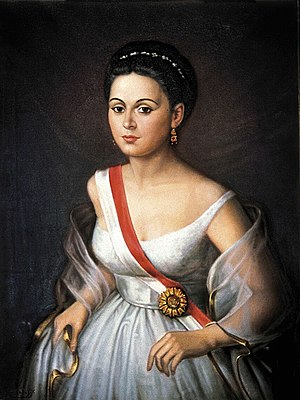
Manuela Sáenz de Vergara y Aizpuru (1797–1856) was an Ecuadorian revolutionary heroine who played a pivotal role in South America's fight for independence. Born in Quito, she defied societal norms and became involved in the revolutionary cause, actively gathering information, distributing leaflets, and advocating for women's rights. Her unwavering dedication earned her the prestigious Order of the Sun for her invaluable services. Sáenz's life took a dramatic turn when she left her husband and embarked on a passionate and dangerous relationship with Simón Bolívar, earning her the moniker "Libertadora del libertador" for her pivotal role in saving Bolívar's life. Despite being overlooked for much of history, Sáenz is now recognized as a feminist icon of the 19th-century wars of independence, symbolizing courage and resilience. Her early life was marked by adversity, being the illegitimate child of Maria Joaquina Aizpuru and the Spanish nobleman Simón Sáenz de Vergara y Yedra. Despite facing challenges and societal constraints, Sáenz fearlessly pursued her beliefs and left an indelible mark on history as a trailblazing figure of her time.
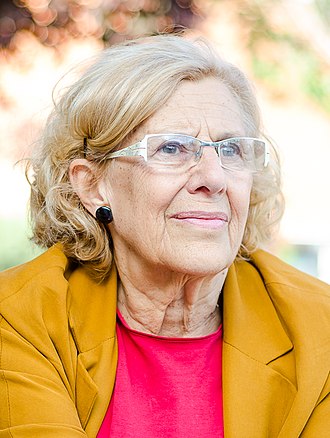
Manuela Carmena Castrillo, born on February 9, 1944, is a retired Spanish lawyer and judge who served as the Mayor of Madrid from June 2015 to June 2019. Before her political career, she had a notable judicial career, being recognized for her fight against corruption and receiving the National Human Rights Award in 1986. After retiring from the judiciary in 2010, she continued her involvement in public service, becoming a member of the Patronato de la Fundación Alternativas and serving as Chair-Rapporteur of the United Nations Working Group on Arbitrary Detention. In addition, she founded the supportive cooperative "Yayos emprendedores" and was appointed advisor to the Patxi López cabinet of the Basque Government. As the Mayor of Madrid, Carmena made significant strides in reducing the city's municipal debt and increasing social spending, despite facing challenges and opposition. In the 2019 municipal election, she ran for re-election but ultimately resigned from her councillor seat in June 2019. Beyond her political career, Carmena has continued to express her perspectives on societal issues, emphasizing the importance of truth and accurate policies.
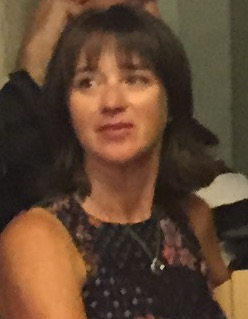
Manuela Georgieva Maleeva, born on February 14, 1967, is a former Bulgarian professional tennis player who competed on the WTA Tour from 1982 to 1994. Notably, she represented Switzerland from January 1990 until her retirement. Maleeva achieved a career-high singles ranking of No. 3 in the world in February 1985 and maintained a year-end top 10 ranking for nine consecutive years. She clinched 19 WTA singles titles, four doubles titles, and reached 14 Grand Slam quarterfinals, including two US Open semifinals in 1992 and 1993, her best Grand Slam results. Maleeva also won the bronze medal in singles at the 1988 Seoul Olympics, marking Bulgaria's first and only Olympic tennis medal to date. After retiring in 1994, she has been involved in politics as a founding member of Yes, Bulgaria! and is active in her foundation, Fondation Swissclinical, which focuses on supporting handicapped and underprivileged children. Maleeva currently resides in La Tour-de-Peilz, Switzerland.
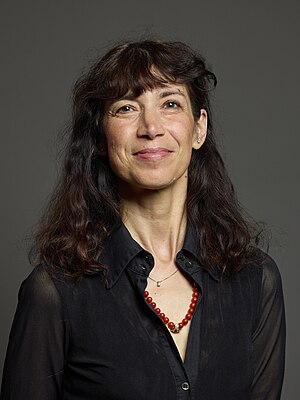
Manuela Perteghella, born around 1973 or 1974, is an Italian-born British Liberal Democrat politician, currently serving as the Member of Parliament for Stratford-on-Avon since 2024. She completed her Bachelor of Arts in English and theatre studies at the University of North London, followed by a master's in literary translation and a PhD in theatre and translation from the University of East Anglia. Prior to her political career, Perteghella held positions as a university lecturer, school governor, and senior lecturer at London Metropolitan University. Her diverse career also includes roles as a curator of community arts projects, a published researcher in literary translation, and a principal tutor at the University of Warwick. In the 2024 United Kingdom general election, she secured victory in the constituency of Stratford-on-Avon, becoming the first non-Conservative MP for the area since 1950 and the first female MP of the constituency. Additionally, Perteghella is a district councillor for the ward of Welford-on-Avon and has stepped down from her previous role as a Director of Environmental Policy Consulting. She resides in Welford with her husband, Dr. Bruce Horton, an environmental economist, and their three children. Despite living in the United Kingdom for 30 years, she was unable to vote in the 2016 United Kingdom European Union membership referendum due to her citizenship status. This experience motivated her to pursue a career in politics, transforming her initial disenfr
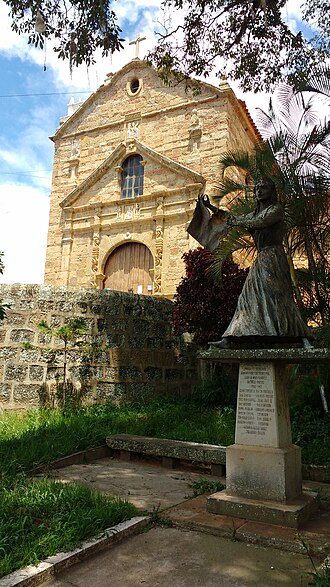
Manuela Beltrán, a Neogranadine woman born around 1750, is known for organizing a peasant revolt against excessive taxation in 1780. Living most of her life in Villa del Socorro, Santander, she defied societal norms by running her own small grocery store, a rare feat for a woman during that time. Beltrán was also one of the few literate individuals in the region, highlighting the widespread illiteracy due to the absence of educational facilities. The revolt she led was sparked by the harsh taxation regimen imposed by General Visitor Juan Francisco Gutiérrez de Piñeres and supported by the Viceroy and Archbishop Antonio Caballero y Góngora. The protest extended to over sixty cities and towns in the Andean Region of Colombia and Llanos, eventually culminating in a fake negotiation offered by the Viceroy and the capture and execution of most revolt leaders, including José Antonio Galán. The fate of Beltrán after the revolt remains unclear. Despite the scarcity of information about her life, Manuela Beltrán's cultural relevance is evident through the numerous schools, institutions, and neighborhoods named after her in Colombia, as well as a popular television series based on her life in the 1980s.
All images displayed on this page are sourced from Wikipedia or Wikimedia Commons.We use these images under their respective Creative Commons or public domain licenses. Wherever applicable, author attributions and license information are provided. If you believe an image is used incorrectly or outside its license terms, please contact us so that we can review and correct the issue.